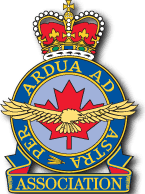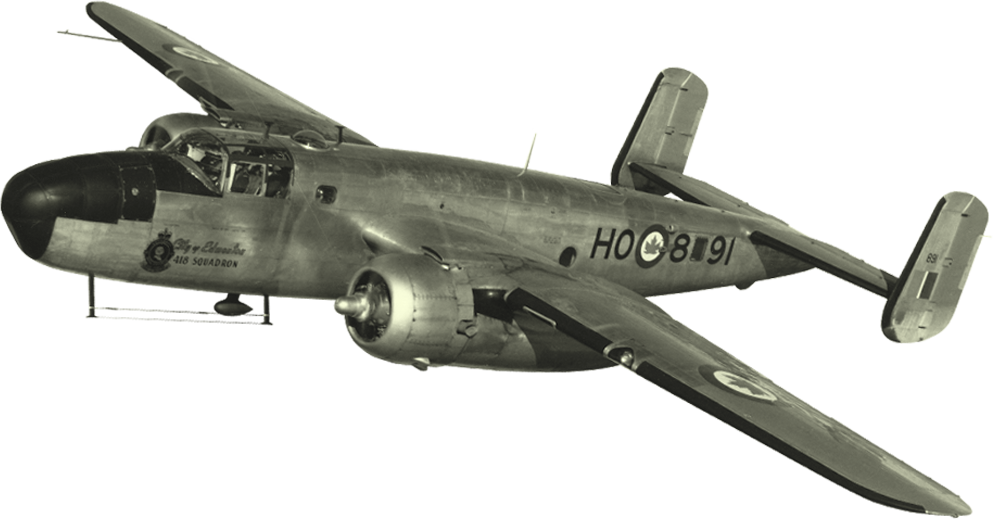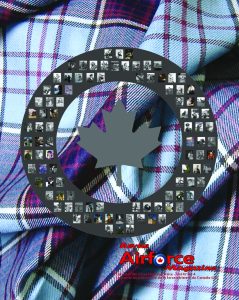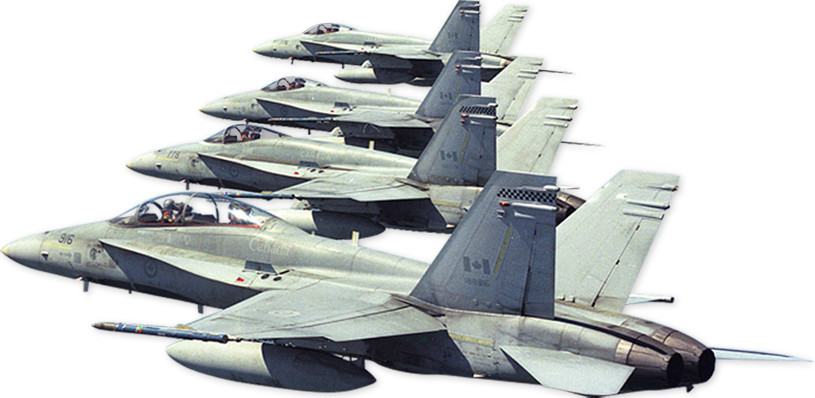McBEATH,
Harry Lindsay
Sergeant,
No.7 Squadron,
R128527
Distinguished Flying Medal
RCAF Personnel Awards 1939-1949
Description (click to view)
McBEATH, Sergeant Harry Lindsay (R128527, later J39450) - Distinguished Flying Medal - No.7 Squadron - Award effective 6 July 1943 as per London Gazette dated 6 July 1943 and AFRO 1724/43 dated 27 August 1943. Born October1918; home in Vancouver (salesman and clerk); enlisted there 25 August 1941. Granted Leave Without Pay until 8 September 1941 when posted to No.3 Manning Depot. To Calgary, 10 October 1941. To No.4 ITS, 10 November 1941; graduated and promoted LAC, 3 January 1942 when posted to No.2 AOS; graduated 10 April 1942 and posted next day to No.8 BGS; may have graduated 23 May 1942 but not posted to No.1 ANS until 6 June 1942; graduated and promoted Sergeant, 23 June 1942. To ?Y? Depot, 27 July 1942; to RAF overseas, 6 August 1942. Repatriated 22 May 1943. To No.5 EFTS, 23 June 1943. To No.3 SFTS, 21 August 1943. Graduated as pilot and commissioned, 10 December 1943. To No.2 Flying Instructor School, 14 January 1944. To No.17 SFTS, 13 March 1944. Promoted Flying Officer, 10 June 1944. To No.8 Release Centre, 8 March 1945; retired 4 October 1945. Medal presented 29 May 1947. NOTE: The citation refers to F/O G.H.F. Carter, DFC (RCAF), but in Carter\'s entry lists No.35 Squadron. Either there is an error respecting one of the men\'s unit, or this citation covers two men getting different decorations in different units. Both men are navigators.
In air operations Flying Officer Carter and Sergeant McBeath have displayed courage, initiative and fortitude in keeping with the highest traditions of the Royal Air Force.
Public Record Office Air 2/4974 has recommendation drafted 3 June 1943 by W/C H.H. Burnell, Commanding Officer of No.7 Squadron. He had flown eleven sorties (58 operational hours). Sortie list and submission as follows:
15 November 1942 - Genoa (2.23)
17 November 1942 - GARDENING (4.04)
20 November 1942 - Turin (8.21)
21 November 1942 - GARDENING (7.10)
28 November 1942 - Turin (4.46)
29 November 1942 - Turin (8.08)
2 December 1942 - Frankfurt (6.15)
6 December 1942 - Mannheim (3.41)
8 December 1942 - Turin (7.33)
11 December 1942 - Turin (5.39)
21 December 1942 - Munich (missing)
Sergeant McBeath was Air Bomber in an aircraft detailed to attack a target in Munich one night in December 1942. On the return journey, after successfully attacking the target, the aircraft was attacked by two night fighters resulting in the crew having to bale out.
Having effected a safe parachute landing, this Non-Commissioned Officer made his way by devious routes to Gibraltar and finally returned to this country. The resource, ingenuity and courage displayed by Sergeant McBeath in evading capture throughout a long and tedious journey through enemy occupied territory were of the highest order. Strongly recommended for the award of the Distinguished Flying Medal.
NOTE: Public Record Office WO 208/3313 has his MI.9 report of evasion. He was bomb aimer and front gunner of a Stirling, No.7 Squadron, detailed to bomb Munich on the night of 21/22 December 1942. On the return journey, near Rheims, they were attacked by two Bf.110 night fighters and shot down (F/O Hector Duro, pilot, killed, along with four other members of the crew). McBeath parachuted to safety.
I came down just northwest of Fraillicourt, northwest of Rethel...between 2330 and 2345 hours. I ran for a ditch immediately. Two men and a dog came past, but I made no movement and they went on towards the aircraft. I buried my parachute and flying suit in the ditch. The men and the dog returned and stopped for a few minutes quite near me. When they had gone I started walking due south.
I walked most of the night through the fields and stopped at a small church just outside the village of Seraincourt. I lay down behind the alter, wrapping myself in two small rugs.
About 0900 or 1000 hours next morning (22 December) I saw a small boy digging in a field near the church. I knocked on the window and held up the packet of matches from my escape aids box so that he could see the ?V? sign. About 1200 hours the boy?s father and mother and two uncles came into the church. I knew just enough French to make myself understood, and told them I was in the Royal Air Force, whereupon the women fetched food for me. I was left alone in the church throughout the afternoon. Some children came in and played, but an old woman chased them away before they discovered me. About 1700 hours the boy?s father came in with civilian clothes and shoes and a loaf of bread and told me to make haste. He took me round the outskirts of the village to the western side, where two trucks were waiting. The trucks were filled with empty wine casks.
I was hidden in one of the trucks, on each of which there were three or four men, and taken to a tavern in Rheims owned by one of them.
That night I was visited by two Frenchmen, one of them the father of a young man with whom I later travelled to Spain. Next night (23 December) one of these Frenchmen took me to his home, where I remained until 15 January 1943. During this time I was provided with an identity card.
I left Rheims on the night of 15 January for Paris with a young Frenchman. I travelled as a deaf mute. From Paris we went to Coutras. In Coutras we were met at the station by a Frenchman (about 0630 hours, 16 January). The Frenchman conducted us to a village which may have been St.Menard, six kilometres east of Coutras. We spent the day in a small hotel in the village, and that night were taken by bus to Mon Pont. There our French helper could not find a farmer who was to have taken us over the Line of Demarcation, so we stayed the night in Mon Pont.
Next morning (17 January) our helper from Coutras himself conducted us across the Line of Demarcation. We were told that there were German patrols with dogs on the Line, but we saw no sight of them. About 10 ? kilometres from Mon Pont we got a train to Perigueux at a small station, the name of which I do not know. From Perigueux we went on to Toulouse which we reached on the night of 17 January. We continued to Montrejeau (west of St.Gaudens) where we arrived on the morning of 18 January.
We were sheltered at Montrejeau till 22 January, our host sending one of his workmen to the frontier to arrange for guides. The guides accepted 5,000 francs for the two of us - all the money we had. My French companion also got me at Montrejeau an identity card valid for the frontier zone.
On the night of 22 January the workman who had made the arrangement with the guide took us to Bagneres-de-Luchon. The guide took us over the frontier, leaving us about 0700 hours (23 January) at a deserted stone hut from which we could see Bosost. The guide said there was usually a patrol of two German soldiers and a dog on this part of the frontier, but we saw no sign of them, although we did see a tent. We skirted Bosost and got to about two kilometres from Viella, where we were stopped by two Civil Guards whom we had at first taken for Boy Scouts. We both claimed to be Canadians who had escaped from Germany. The Civil Guard took us back to Aubert, and thence to Viella by truck. We were four days in Viella in a hotel. While there I telephoned the British Consulate-General in Barcelona, giving my name, rank and number and stating that my companion was also British. I confirmed this by telegraph.
We were sent to Sennet with a party of French people who had crossed the frontier. From Sennet we were sent via Villajer (26 or 27 January) and Tremp (three days in prison) to Lerida, where I was interned from 1 February to 27 February in a political prison under very bad conditions. After five days in prison in Saragossa I was transferred to Merenda, where I remained rom 5 March to 6 April.
The Spanish Air Force then took charge of me, and I was interned at Alhama de Aragon for four days.
After three days in Madrid I was sent to Gibraltar (arrived 17 April). My French companion was released rom Miranda two days before me, and was in Madrid when I left.
The report notes that he left Gibraltar on 19 April 1943 and arrived at Hendon on the 20th.
The website ?Lost Bombers? has the following on the mission when has downed but evaded. Stirling R9262, No.7 Squadron (MG-A), target Munich, 21/22 December 1942. Aircraft was delivered to No.7 Squadron on 22 November 1942. It was one of three No.7 Squadron Stirlings lost on this operation; the others were W7632 and BF358. Airborne at 1709 hours, 21 December 1942 from Oakington. Shot down by an Me110 and crashed at Seraincourt (Ardennes) 16 km NW of Rethel, France. Crew were F/O H.Durp (killed); Sergeant T.I.Boddy (evaded); P/O F.E.Lewis, RCAF (evaded); Sergeant H.L.McBeath, RCAF (evaded); Sergeant P.G.E.Ross (POW); Sergeant G.R.Dickenson (killed); Sergeant A.T.Carpenter (killed).
McBEATH,
John Henry
Flight Lieutenant,
No.202 Squadron,
J17415
Mention in Despatches
RCAF Personnel Awards 1939-1949
Description (click to view)
McBEATH, F/L John Henry (J17415) - Mention in Despatches - No.202 Squadron - Award effective 1 January 1945 as per London Gazette of that date and AFRO 379/45 dated 2 March 1945. Born August 1918. Home in Ingersoll, Ontario; enlisted in London, 19 February 1941 and posted to No.1 Manning Depot. To ?H?, 9 April 1941. To No.1 ITS, 21 June 1941; graduated and promoted LAC, 26 July 1941 when returned to No.1 Manning Depot; to No.1 EFTS, date uncertain (not shown on microfilmed cards); posted on 25 September 1941 to No.5 SFTS; graduated and promoted Sergeant, 19 December 1941. To ?Y? Depot, 20 December 1941; to RAF overseas, 7 January 1942. Commissioned 29 March 1943. Promoted Flying Officer, 28 September 1943. Promoted Flight Lieutenant, 17 July 1944. Repatriated 3 November 1944. To No.3 OTU, 7 December 1944; to Patricia Bay, 3 June 1945; to No.4 Release Centre, 7 October 1945; retired 15 October 1945.
MCBEATH
Description (click to view)
DOUGLAS P/O(N) J16258//R92465. From Golden, British Columbia. Killed in Action Feb 18/43 age 23. #409 Nighthawk Squadron (Media Nox Meridies Noster). Beaufighter aircraft #X 7893 did not return from operations over enemy territory. P/O T.S. Briggs was also killed. Pilot Officer Navigator McBeath is buried at the Reichswald Forest War Cemetery, Kleve, Germany.
MCBEATH
Description (click to view)
ROBERT ALEXANDER FS(AG) R175940. From Penticton, British Columbia. Killed in Action Mar 25/44. #427 Lion Squadron (Ferte Manus Certas). Target - Berlin, Germany. Please see Young A.J. for casualty list and flight detail. Flight Sergeant Air Gunner McBeath was buried in the Old Catholic Cemetery at Authaus, Germany, exhumed, and reburied in the Reichswald Forest War Cemetery, Kleve, Germany.
MCBEATH
Description (click to view)
THOMAS ALBERT P/O(BA) J94509//R163713. From Prince Albert, Saskatchewan. Killed in Action Apr 3/45. #299 Squadron. Stirling aircraft #Li 942 crashed at night in shallow water in Denmark. Although it was dark and the aircraft was submerged the pilot searched the aircraft but could not locate P/O McBeath. Pilot Officer Bomb Aimer McBeath is buried in the Churchyard at Vaerlose, Denmark.








